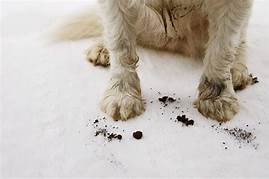Can You Have a Pet Raccoon?
Raccoons are curious and intelligent creatures that can make fascinating pets. However, before you decide to bring a raccoon into your home, it's important to understand the unique challenges and requirements of owning one.

Legal Considerations
1. Verify Local Laws: In many areas, it's illegal to own a pet raccoon. Check your local and state laws to ensure that it's legal to own a raccoon in your jurisdiction.
2. Obtain Necessary Permits: Some states require permits or licenses to keep a pet raccoon. Make sure you have the necessary documentation before bringing a raccoon home.
Housing and Care
1. Spacious Enclosure: Raccoons need plenty of space to roam and play. Provide a large enclosure or dedicated room with climbing structures, hiding spots, and a water bowl.
2. Proper Diet: Raccoons are omnivores and need a balanced diet that includes fruits, vegetables, meat, and insects. Consult with a veterinarian to create a diet plan.
3. Regular Veterinary Checkups: Raccoons can carry diseases that can be transmitted to humans. Schedule regular veterinary checkups to ensure your raccoon's health and to prevent the spread of diseases.
Training and Interaction
1. Early Socialization: Handle your raccoon from a young age to help it become comfortable with human interaction. This can help prevent aggressive behavior.
2. Positive Reinforcement: Use positive reinforcement techniques, such as treats and praise, to train your raccoon basic commands and tricks.
3. Supervised Interaction: Always supervise interactions between your raccoon and children or other pets to ensure safety.
Potential Challenges
1. Destructive Behavior: Raccoons are known for their curious and destructive nature. They may chew on furniture, climb curtains, or get into mischief if they're not properly trained and supervised.
2. Nocturnal Habits: Raccoons are nocturnal animals, meaning they're most active at night. This can disrupt your sleep cycle if your raccoon is noisy or restless during the night.
3. Potential to Carry Diseases: Raccoons can carry diseases like rabies, distemper, and roundworm. It's important to vaccinate your raccoon and take precautions to prevent the spread of diseases.
Overall, while raccoons can make fascinating pets, it's important to carefully consider the legal, housing, care, and potential challenges involved before deciding to bring one into your home. If you're committed to providing a safe and nurturing environment for a raccoon, you can potentially enjoy a rewarding and unique pet-owning experience.
Declaration: All article resources on this website, unless otherwise specified or labeled, are collected from online resources. If the content on this website infringes on the legitimate rights and interests of the original author, you can contact this website to delete it.



